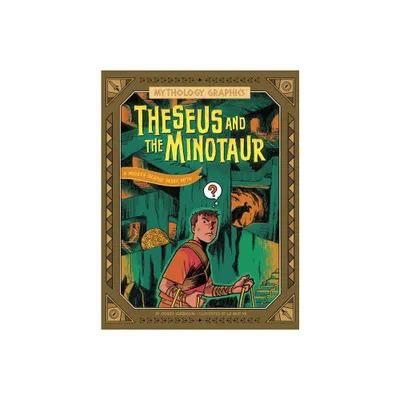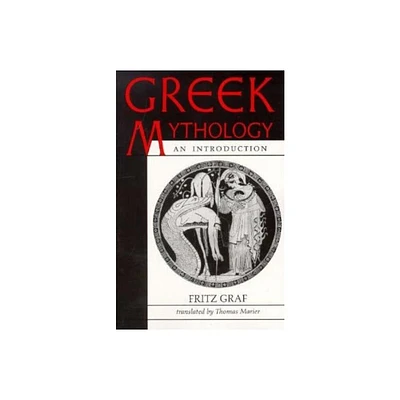Home
Theseus and the Minotaur: The History of One of Greek Mythology's Most Famous Legends
Loading Inventory...
Barnes and Noble
Theseus and the Minotaur: The History of One of Greek Mythology's Most Famous Legends
Current price: $10.24


Barnes and Noble
Theseus and the Minotaur: The History of One of Greek Mythology's Most Famous Legends
Current price: $10.24
Loading Inventory...
Size: OS
*Product Information may vary - to confirm product availability, pricing, and additional information please contact Barnes and Noble
*Includes pictures *Includes ancient accounts of the myth *Discusses historical theories behind the legend *Includes online resources and a bibliography for further reading "Theseus, the hero-slayer of the Minotaur, entered Crete from without, as the symbol and arm of the rising civilisation of the Greeks." - Joseph Campbell Countless civilizations have come and gone over the course of time, but interest in mythology is one of the great constants. People have approached myths from countless angles, some denigrating and self-righteous, others earnest and open-minded, but there is something mystical and universal in all myths that speaks to the reader across the years, regardless of what they know of historiography or "schools of thought." The truth is that all of these stories live in a murky, anachronistic history so entangled that trying to unravel it can mean everything or nothing at all. One of the reasons for this is the age of most myths, especially those from ancient times (the name Theseus can be traced back as far as 1450 BCE, for instance). Another is the sheer volume of possible versions there can be of a given myth. A lot of mythological stories span centuries, so it's likely that nothing like an "original version" of Theseus and the Minotaur will ever be known. In fact, even if the story could be traced all the way back, the "original" is likely to be so far removed from the beloved modern-day version that it would not be adopted as canon anyway. Nor, it has to be said, can a version of the story be isolated that would have been read at a specific point in time, such as the Classical Period, since a lot of the sources for stories like Theseus are either fragmentary or come even later. Moreover, an "original" is less important than the layers of meaning accumulated over the ages. To the modern reader, the sum of the parts can be more fruitful than the mode of conception. Regardless, as one of the most famous myths of all time, the story of Theseus has been at the heart of Greek mythology since he became Athens' "Culture Hero" at the beginning of the 5th century BCE, and variants on his story surface in countless ancient sources. The importance of the story to the Greeks themselves makes it worth looking at the story from a historical standpoint; many scholars believe the actions and events in myths have a basis in historical fact. On the other hand, Joseph Campbell's "monomyth" theory takes a different approach by suggesting all myths are part of a wider, mythological framework representing the psychological needs of the reader. Whether the approaches are "correct" has been and will continue to be debated in scholarly circles for the foreseeable future, but in many respects both sides of the debate can add value and understanding for modern readers. Even in the case of a story like Theseus that so many people are familiar with, studying the legend allows for different ways of interpreting it, and helps readers understand all the different variations of events within it. Theseus and the Minotaur: The History of One of Greek Mythology's Most Famous Legends looks at the myth of Theseus and the Minotaur, based on both Greek and Roman sources, from which both fascinating and key elements of the story emerge. Along with pictures depicting important people, places, and events, you will learn about the story like never before.


![Theseus: Battling the Minotaur [A Greek Myth]](https://prodimage.images-bn.com/pimages/9780822585176_p0_v2_s600x595.jpg)















